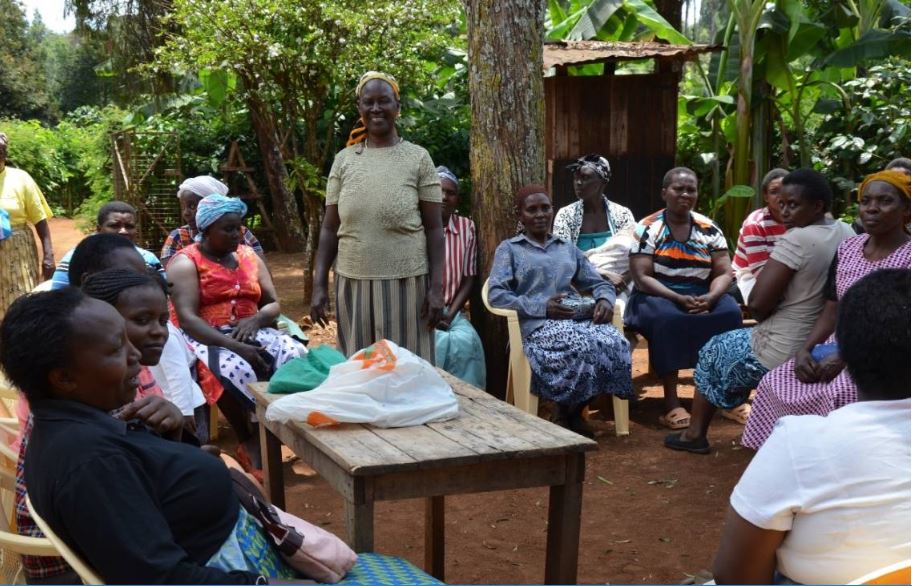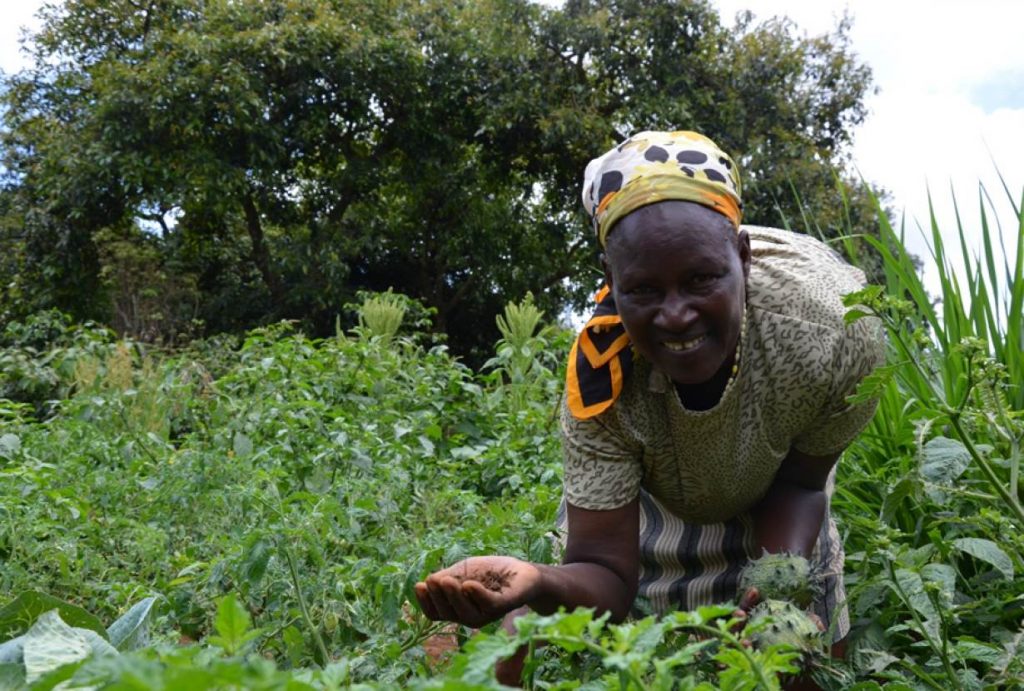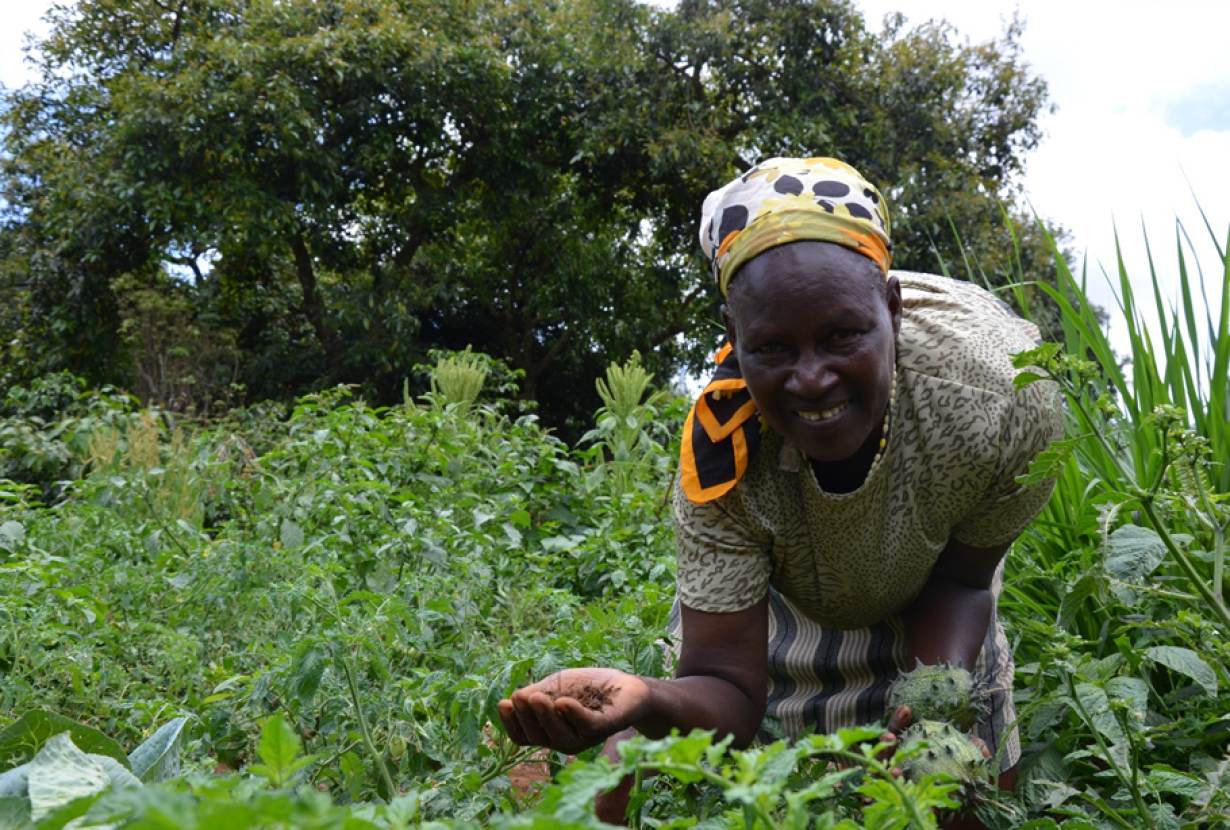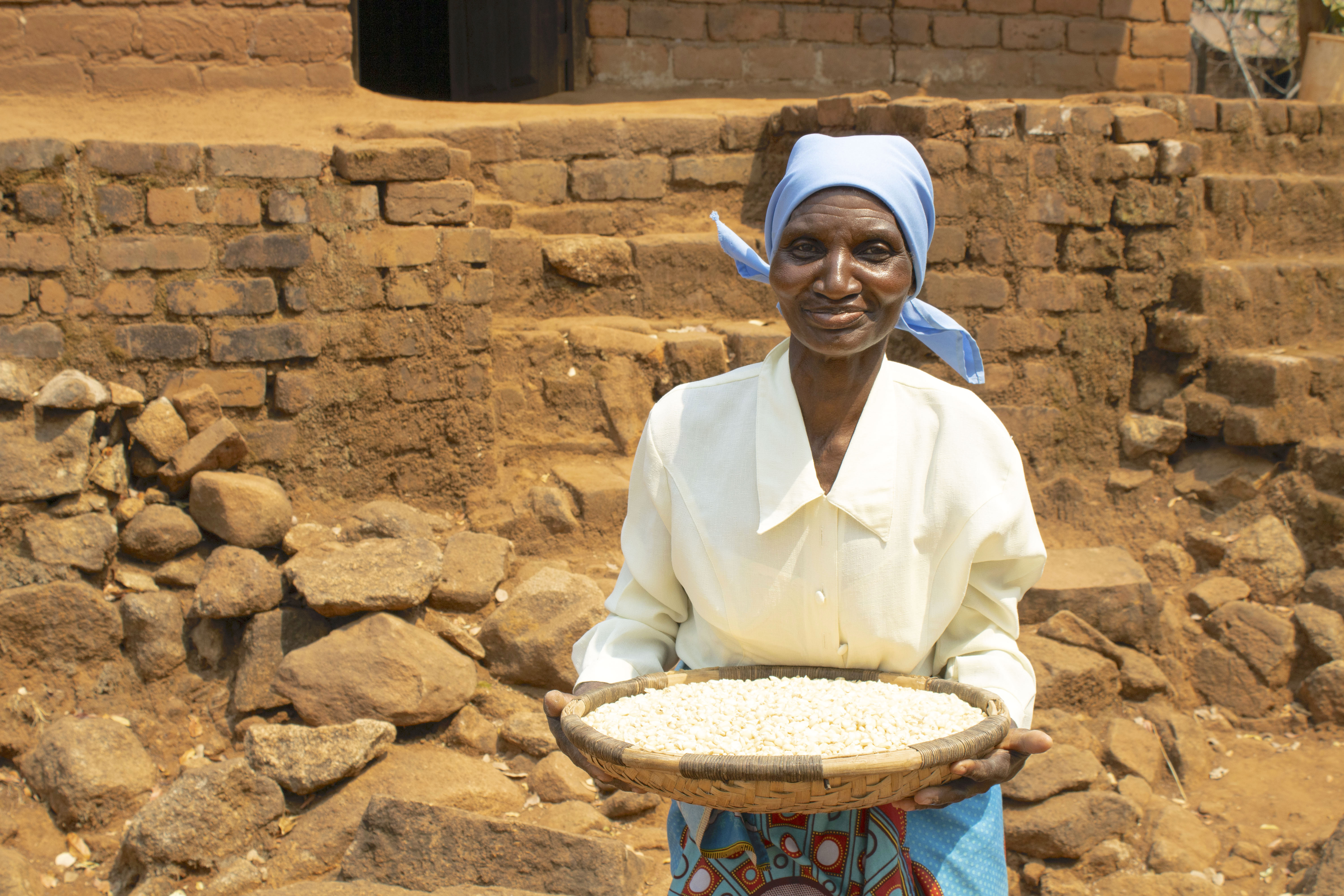 This month’s report from the United Nations’ scientific panel on climate change highlights worsening food shortages as one of the key impacts of global warming.
This month’s report from the United Nations’ scientific panel on climate change highlights worsening food shortages as one of the key impacts of global warming.
Tackling the monumental challenges set out in the report may seem like a mountain to climb, given the policy changes and rapid government action required. Yet, on her 4-acre farm on the foothills of Mount Kenya in Embu county, 65-year-old Purity Gachanga proves it is possible to fight eroding soils, enrich farmland, and increase and diversify food production.
What’s more, she shares her methods with 60 women making up a “merry-go-round” group that meet regularly in her front garden. They each contribute a small sum of money which forms their communal savings system. “Many have put the money towards their farms but we also use it for other things we want like blankets, utensils or chairs,” explains Gachanga.
The group also helps the women share new methods, she adds. “I have learnt many techniques from scientists during training days and I am always one of the first to try these out on my farm. So when we get together for the merry-go-round meetings, I show the others what I am doing and how well it works. They then want to try on their own farms.”
Gachanga points to neat rows of fodder plants on the edges of her farm. “Before I would lose all this topsoil when it rained heavily. I learnt that planting certain varieties of fodder plants with deep roots holds the soil together. The plants also add fertility to the soil and give me good feed for my goats.”
Her goats are very precious as besides providing milk and meat, they helped her pay the school fees for nine of her children. The animals are an essential part of her sustainable farming system as they provide fertilizer for her fields.
The farm is flourishing with beans, kale, amaranth, tomatoes and pumpkins. Gachanga rotates the crops so the soil is never left exposed. “I get a profit from each patch so it makes sense to plan how to use it. I make money, keep my soil and animals in good health and we have a varied diet ourselves.”
The training she has received is part of an initiative called the Sustainable Intensification of Maize-Legume Cropping Systems for Food Security in Eastern and Southern Africa (SIMLESA), whose goal is to scale up proven soil conservation and food production techniques. Its demonstration sessions bring researchers, extension agents, the private sector, and farmers together to discuss and share expertise, and Gachanga is a keen learner.
Richer soils, more food
 Continual farming and mono-cropping of maize along with minimal fertilizer and manure use has rapidly depleted African soil nutrients and resulting yields. Farmers are also used to feeding their livestock with crop remnants from their fields which leaves the soils exposed, further worsening erosion and soil fertility. To address this, farmers are encouraged to leave either all or some crop residues on the field and add nitrogen-fixing legume crops in rotations with cereal crops and forages.
Continual farming and mono-cropping of maize along with minimal fertilizer and manure use has rapidly depleted African soil nutrients and resulting yields. Farmers are also used to feeding their livestock with crop remnants from their fields which leaves the soils exposed, further worsening erosion and soil fertility. To address this, farmers are encouraged to leave either all or some crop residues on the field and add nitrogen-fixing legume crops in rotations with cereal crops and forages.
SIMLESA is on target to achieve its overall goal of reaching 650,000 farmers and increasing farm productivity in Eastern and Southern Africa by 30 percent by 2023.
Rahma Adam, gender specialist at the International Maize and Wheat Improvement Center (CIMMYT) which is leading SIMLESA, said rural women can access better opportunities by being part of a farming innovation group.
The Liganwa women farmers group in Siaya County in Kenya’s Nyanza Province, started in 2007 to help widows in the community get capital to start micro-businesses, and also uses the rotating ‘merry-go-round’ credit and savings system.
After initial challenges in raising capital, as some members were unable to pay their contribution, they joined SIMLESA as part of an agriculture innovation platform. “By experimenting with the demonstrated conservation agriculture techniques, the Liganwa women have since transformed their farming and incomes,” says Adams.
The platform has also enabled women as a group to negotiate better prices to buy inputs and sell produce. Better yields and markets mean members bring money to the group from the surplus maize they sell. So, the merry-go-round now turns with 3 to 5 times more borrowing capacity and 100 percent repayment rates.
One priority of the United Nations’ International Day of Rural Women on October 15 each year is to foster women’s empowerment through climate-resilient agriculture, as with Gachanga and the merry-go-round farmers groups. The challenge is making sure governments put policies and systems in place to ensure other farmers can, and want to, follow suit.
This article was originally published by Thomson Reuters Foundation here.
Sustainable Intensification of Maize-Legume Cropping Systems for Food Security in Eastern and Southern Africa (SIMLESA) is an eight-year food security program supported by the Australian Centre for International Agricultural Research (ACIAR).
Launched in 2010, SIMLESA is managed by the International Maize and Wheat Improvement Center (CIMMYT) and implemented by national agricultural research systems in Ethiopia, Kenya, Malawi, Mozambique and Tanzania. In Kenya, CIMMYT is working closely with the Kenya Agriculture and Livestock Research Organization (KALRO).


 Climate adaptation and mitigation
Climate adaptation and mitigation 
